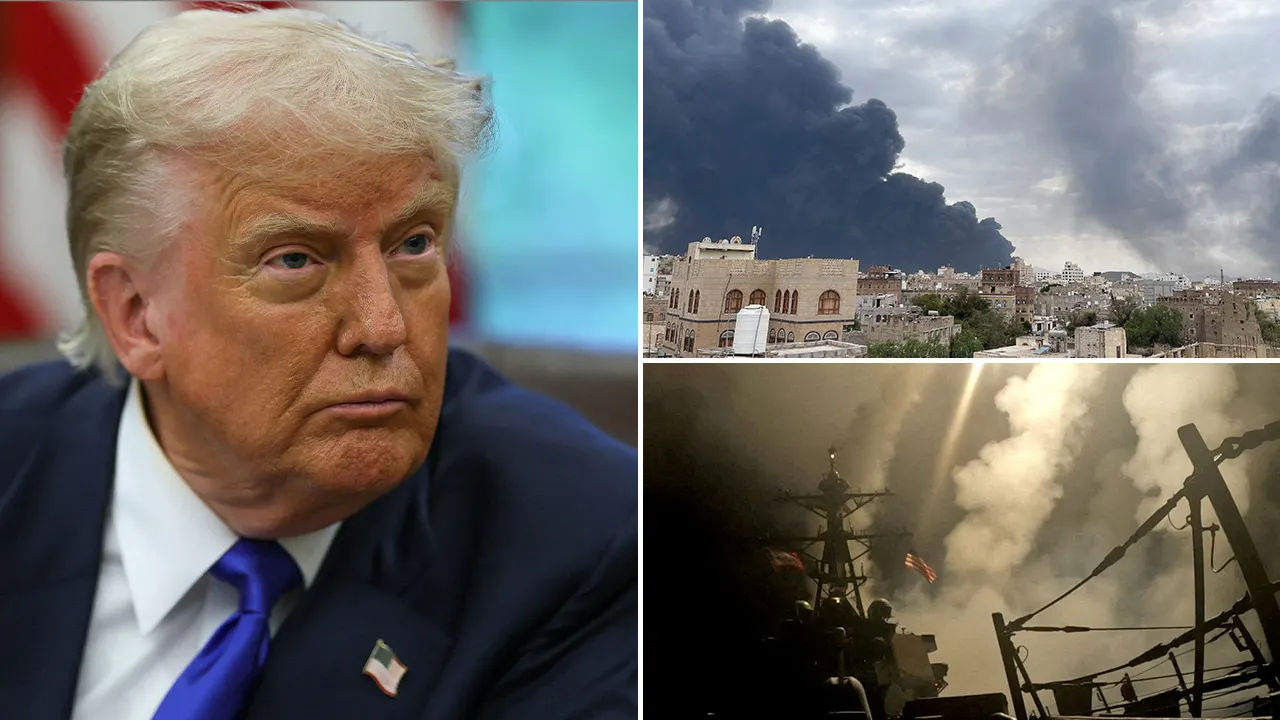Washington, D.C. – In a surprising move, former U.S. President Donald Trump announced that the United States would halt all airstrikes on Yemen, signaling a potential shift in Washington’s approach to the long-standing conflict in the region. The declaration, made via a public statement, also included an expectation that Yemeni forces would refrain from targeting American military vessels and aircraft in return.
A Sudden Policy Shift
Trump’s announcement marks a stark departure from years of U.S. military involvement in Yemen, where American forces have conducted numerous airstrikes, primarily targeting Al-Qaeda in the Arabian Peninsula (AQAP) and, at times, providing support to Saudi-led coalition operations against Houthi rebels.
READ MORE: PM Shehbaz to Address Nation Amid Escalating Indo-Pak Tensions
“The United States is halting all airstrikes on Yemen effective immediately,” Trump declared. “We will no longer bomb the Yemeni people, and we expect that, in return, Yemeni forces will not target American ships or aircraft.”
The statement did not clarify whether this decision was made in coordination with the current Biden administration or if it was an independent political stance by Trump, who remains a leading figure in the Republican Party. However, the announcement has already sparked intense debate among policymakers, military analysts, and humanitarian groups.
Reactions from the Region and Beyond
Yemen has endured nearly a decade of brutal conflict, with a Saudi-led coalition—backed by U.S. intelligence and arms—fighting against the Iran-aligned Houthi movement. The war has led to one of the world’s worst humanitarian crises, with widespread famine, cholera outbreaks, and thousands of civilian casualties.
Houthi officials have yet to issue an official response to Trump’s statement. However, previous attempts at ceasefires have been fragile, with both sides accusing each other of violations. If the halt in U.S. airstrikes holds, it could reduce immediate violence but may also reshape the balance of power in the region.
Saudi Arabia, a key U.S. ally in the conflict, has not commented on the announcement. The kingdom has relied heavily on American logistical support and weapons in its campaign against the Houthis. A reduction in U.S. involvement could pressure Riyadh to reconsider its military strategy.
Humanitarian Relief and Political Implications
Humanitarian organizations have long criticized U.S. and Saudi airstrikes for contributing to civilian suffering. If the bombing stops, aid groups may find it easier to deliver food and medical supplies to war-torn regions.
Politically, Trump’s move could be seen as an attempt to position himself as a peacemaker ahead of the 2024 presidential election. Alternatively, it may signal a broader strategic shift, reducing U.S. entanglement in Middle Eastern conflicts.
Will the Truce Hold?
The key question now is whether Yemeni factions, particularly the Houthis, will honor an informal agreement to avoid targeting U.S. assets. In recent years, Houthi forces have launched missile and drone attacks on Saudi Arabia and have occasionally targeted U.S. warships in the Red Sea.
If both sides adhere to the de-escalation, it could pave the way for more formal peace talks. However, given the complex web of regional rivalries—including tensions between Iran and Saudi Arabia—sustained peace remains uncertain.
What’s Next?
The Biden administration has not yet responded to Trump’s announcement. If the White House adopts this policy, it could signal a major shift in U.S. foreign policy. If not, Trump’s statement may remain a symbolic gesture rather than an enforceable change.
For now, the people of Yemen—exhausted by years of war—will be watching closely to see if this unexpected declaration brings real relief or becomes another broken promise in a long history of conflict.


